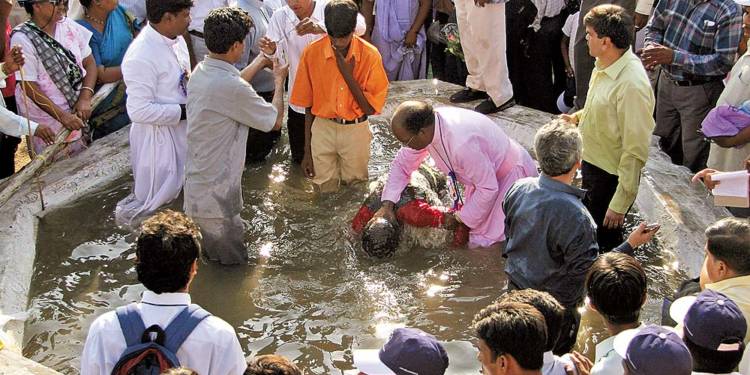The Himachal Pradesh assembly on Friday passed a bill to check on religious conversions done by the use of force, inducement or fraudulent means. The Himachal Pradesh Freedom of Religion Bill, 2019 was passed unanimously by the state assembly with some MLAs such as Asha Kumari, Jagat Singh Negi and Sukhvinder Sukhu from the Congress, and CPM’s Rakesh Singa suggesting a few changes.
This anti-conversion bill will also repel The Himachal Pradesh Freedom of Religion Bill, 2006 which was enacted on similar lines however with transitional changes, need for adding more provisions to deter forceful conversions by inducement or any other fraudulent means was felt. The government instead of amending the previous act decided to go for a new bill all together. CM Jai Ram Thakur said the 13-year old act was not so effective and also clarified on the requirement of a new legislation as instead of amending the already-existing Act which had only eight sections it would have not been feasible to add about 10 more sections to it.
“The intention of this reenactment is also the same as of 2006 Act. Freedom of religion has been given to people by the prohibition of (forced) conversion from one religion to another” said CM Thakur in the assembly.
According to Section 7 (1) of the Act, a person who is willing to convert to another religion will be required to notify the district magistrate one month prior to confirm that the conversion is voluntary and not due to any undue influence, Similarly the priest facilitating this conversion will also have to notify the concerned authority. It is also important to note that for a person seeking to convert back to his or her ‘parent religion’ this advance notice condition won’t be applicable. The act also provides for any marriage arrangement solely for the purpose of religious conversion to be nullified by the court.
Section (4) calls for a fine and imprisonment for at least 1 year to a maximum of 5 years from people indulging in conversion practice through fraudulent means specified in section (3), however if person from Scheduled Caste, women or minors are converted through subversive means the punishment will range from a minimum of 2 years to a maximum of 7 years.
A number of media reports on proselytizers using money and other facilities to lure the poor to change their religion have also been surfacing; several socio-religious organizations operating on funds received around the world are just running missions to convert people with the sole purpose of increasing the number of followers of their religion. This anti-conversion bill comes in a bid to give teeth to the state against these religious conversion mafias operating in Himachal Pradesh; currently only Odisha, Madhya Pradesh, Chhattisgarh, Gujarat, Rajasthan, Himachal Pradesh and Arunachal Pradesh have laws against religious conversion through fraudulent means.
Nonetheless, similar legislations deterring forced religious conversion are surely the need of the hour not only on state levels but also on national level. Sources in the BJP have also indicated towards a similar anti-conversion bill to be introduced in the next session of Parliament.

























